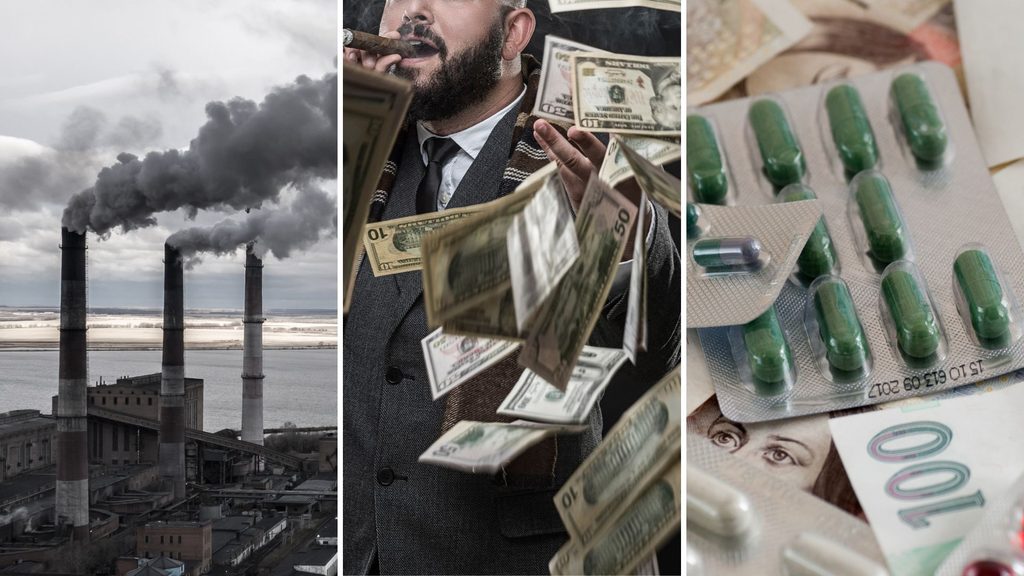Anyone reading headlines about inflation going down might question the veracity of these reports after a trip to the supermarket, especially if they happen to dig out a receipt for the same products a year ago. Though cheaper energy costs are now pulling inflation down overall in Belgium, some foodstuffs are 15% more expensive than last year.
In addition, the selection of products available has gone down, concentrating demand on a limited offering of goods and services that are not only desirable but actually essential.
The succession of major disruptions to supply chains seen in the last years has not only strained household and state finances – the resilience of businesses has been severely challenged, with many unable to weather the shocks. The resulting reduction in market competition has allowed larger companies, particularly those embedded in national economies, to consolidate their standing as go-to retailers and service providers.
But as competitors buckled under the blows, those that remained were able to tighten their hold on consumers, moving towards a monopoly where they could set prices to the advantage of shareholders rather than customers. This led to some pretty astounding profit margins that generated public outcry for reasons that needn't be repeated.
Now given a very clear appellation, greedflation has been found to contribute more to the sometimes double-digit inflation seen across Europe than the actual rise in supply costs. The cost of this ethically-questionable practice has been found to affect Belgium's inflation rate more than other factors. Most notably, the findings show plainly that the habitual criticism that business leaders level at Belgium's automatic wage indexation is secondary to the burden imposed by businesses that trade scruples for financial gain.
In light of the analysis, which puts a figure on widely known but hitherto unquantified excesses, Belgians will be wondering what will be done in what now seems a clear-cut case of entrepreneurial malfeasance. Previously, efforts have been made to pull back some of the ill-gotten gains by the mechanism of windfall taxes – both at national and EU level. But these attempts have ultimately been unsatisfactory, with the world's most heinous polluters using them to paint themselves the victim of state intrusion.
But as the latest revelations highlight (once again), laissez-faire isn't very fair.
Belgium in Brief is a free daily roundup of the top stories to get you through your coffee break conversations. To receive it straight to your inbox every day, sign up below:
1. The price of avarice: Study reveals greedflation's role in Belgium's inflation crisis
A new study has quantified the extent to which 'greedflation' – the tendency for companies to boost profits during inflationary periods through unnecessary price hikes – has contributed to Belgium's soaring inflation rate. Read more.
2. Under the eye: Are employers allowed to monitor work devices?
In this digital day and age, it is not unusual to wonder whether your employer is able to take a sneaky look at your computer files, emails or phone activity without your knowledge. Read more.
3. City of Brussels Archives organise stock sale next weekend
History buffs and treasure hunters, as well as anyone interested in Brussels and its heritage, can visit the stock sale at the Brussels City Archives on 2 and 4 June. Read more.
4. Erdogan victory celebrations lead to 51 arrests in Genk, Limburg
Local police issued 51 tickets in connection with the celebrations marking the election victory of Turkish President Recep Tayyip Erdogan in Genk on Sunday evening, the town's mayor, Wim Dries, announced on Monday. Read more.
5. Peaceful protest for Sanda Dia to be held in Brussels on Sunday
A demonstration will be held in front of Brussels' Palais de Justice at 13:00 on Sunday 4 June by protestors who deem the punishment for Sanda Dia's death as too lenient. Read more.
6. Brussels Iris Hospitals on strike, minimum service provided
The Iris Hospital network in Brussels is striking on Tuesday to make a stand against employees' poor working conditions. Some services will still be provided, however, RTL Info reports. Read more.
7. Hidden Belgium: Belgium’s first eco swimming pool
The open-air swimming pool in Antwerp’s Boekenberg Park was converted in 2007 into the country’s first eco swimming pool. Read more.


